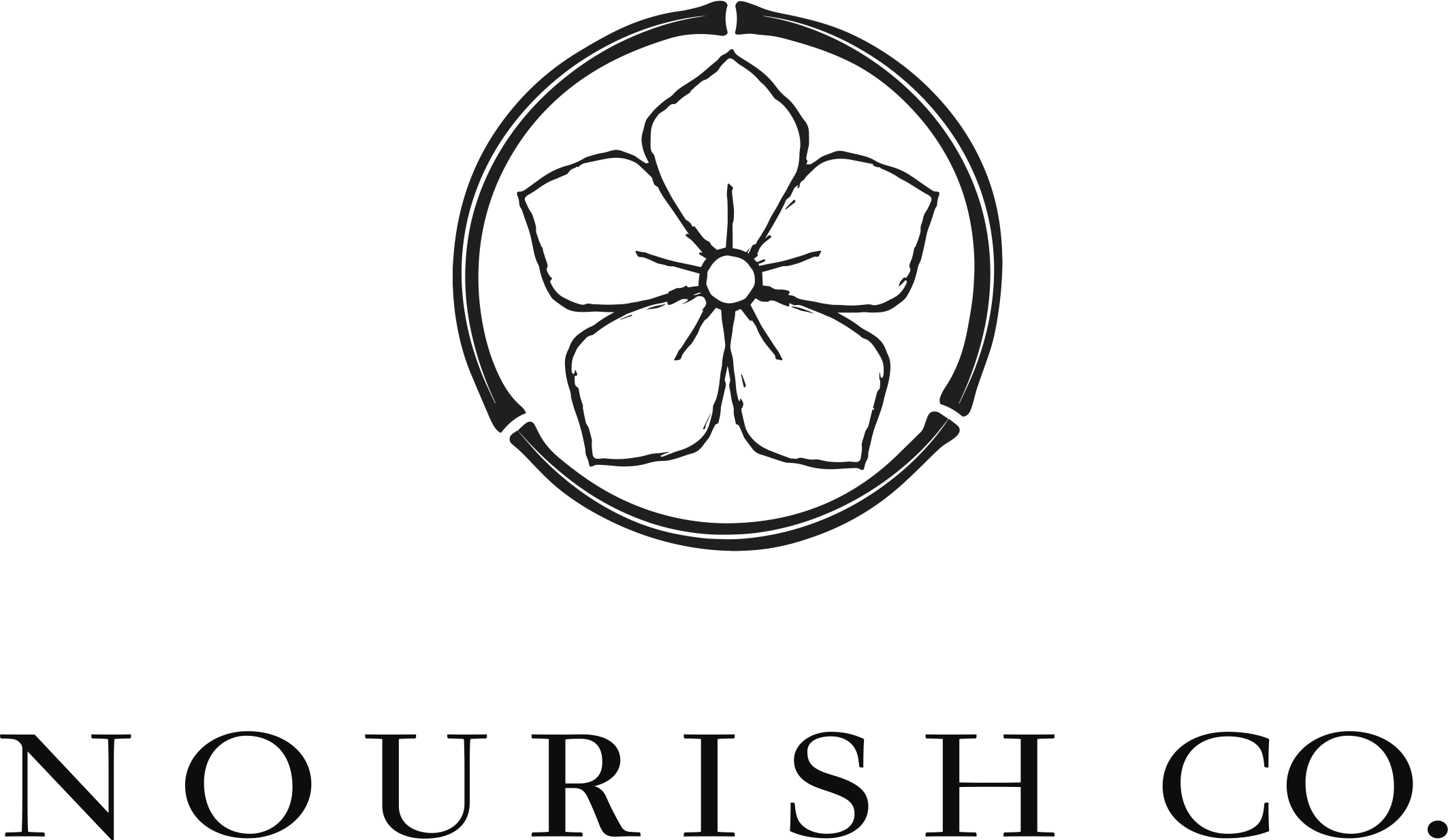Heritage
Photo by Perfect Circle Photography
Heritage and tradition mean different things to different people. At Nourish, we define heritage as traditions handed down from previous generations. For example, the holidays we celebrate, the traditions we observe and the recipes we make for those holidays, are all part of our heritage.
Heritage is complex for most of us who live in countries and communities with mixed cultures like the US. Even if you appear, like me, to be of 100% “Japanese” heritage. Having been born and raised in a suburb of Los Angeles, I have always felt “in-between.” Never quite Japanese enough (my Japanese language skills are elementary at best and I defiantly never learned to use chopsticks correctly) or American enough (I brought bento boxes with strange ingredients in them to school as a child, unfortunately well before those ingredients were on the pages of Bon Appetit). For years, I searched for a place where an “in-between” person like me could belong. I’ve slowly come to the realization that I couldn’t find it because I had to create it.
My husband Bryan and I are both Jewish. When we got married, I became overwhelmed by this concept of heritage. I believed I was the last link to my Japanese heritage and I believed that we were the last link to Bryan’s Jewish heritage. I considered trying to learn all the traditions from both of our sides and worried about doing everything “correctly” and “authentically”. Of course that would never work or be any fun or stand a chance at sticking around for future generations. You know what always worked, though? Making the traditions we inherited our own. Making sure they were in alignment with our lives, who we are, and with our values.
We live in an age when we are more connected globally than ever before. Yet people are lonelier and more depressed than ever before. Though heritage can conjure up bad memories of sitting through mass on Sundays, at Hebrew school on Tuesday evenings or early Saturday mornings at Japanese school, the root of many of the traditions we’ve inherited are rich with wisdom. We may not need that on a day-to-day basis, but our traditions help us mark time, celebrate milestones, provide comfort and are anchors during difficult times. They can also help us feel like we are part of something bigger. I believe it’s my job to make the traditions we have inherited relevant to our lives today. In fact, we HAVE to make them our own if they are to survive. I like to think that’s what our ancestors did, and it’s what they would have wanted for us, anyway.
Food is an entryway into heritage and traditions. This past Passover, I made a Japanese-inspired matzah ball soup to go with my favorite brisket recipe. Everyone at our table told a story about immigration in their families and we remembered that not long ago, many of our ancestors were immigrants (and in many cases, refugees). It’s amazing to me that the story of Passover is thousands of years old, yet it's still relevant every year. I felt so grateful to be able to connect with my community and heritage so deeply and silently thanked our ancestors for carrying on such a beautiful tradition.
It’s taken several years for us to bring traditions from our heritage into our lives, reinterpret them and create traditions of our own. Here are five ways you can, too!
Google (insert cultural heritage here) holidays 2017 and see what holidays you might like to try out this year. Start with one that seems fun or meaningful to you and start dreaming about what you’d like to do. Maybe it’s making gluten-free pan de muerto, dressing up and participating in a Dia de los Muertes parade. Or picking up dumplings and mooncakes and inviting some friends over for Chinese New Year? Each time, write down what worked and what didn’t since it always helps to not have to start from scratch next year. Since I love to entertain, I keep an entertaining journal with all my notes.
Longing to connect to your heritage on a weeknight? Try a simple recipe from the culture of your heritage. If you like it, add it to your repertoire of delicious, nourishing, weeknight meals. Take notes and tweak it each time. The best recipes take experimentation, love and time.
Missing a relative who’s no longer here? Make a variation of their favorite recipe you inherited or simply a dish that reminds you of them and tell a story about them. You can do this on a random day when you are missing them, on their birthday, or as in Jewish tradition, on their Yahrzeit (anniversary of death).
Tell stories of your heritage from your ancestors or from your childhood. Stories can help us connect to our past and help keep traditions alive. For example, every year on Japanese New Year, I tell the story of how my Mom made 30 pounds of homemade mochi each year and my Dad drove around delivering it to family and friends.
Purchase or find objects that help you feel connected to your heritage and put it in your space- whether that’s on your person (for example, jewelry), on your desk at work, on the walls of your home, etc. For me, that’s a handmade quilt from our Great Aunt, my Star of David necklace and photos of my grandparents in a sort of modern shrine (on my wall, above my vanity table).

